#Hitchcock 2012
Explore tagged Tumblr posts
Text










Scream King - Anthony Hopkins
#horror#horror movies#horror movie#movie#movies#gifs#gif#horror gifs#horror gif#my gif post#my gif#my gifs#horror edit#horroredit#anthony hopkins#bram stocker's dracula#bram stoker#Dracula#van Helsing#the silence of the lambs#magic 1978#the Wolfman#the Wolfman 2010#Audrey rose#the rite#hannibal 2001#red dragon#Hitchcock 2012#Hitchcock#fracture 2007
294 notes
·
View notes
Text







Hitchcock 2012
Dir. Sacha Gervasi
“And that my dear is why they call me the master of suspense.”
#movie#film#favorite movies#watchlist#biopic#drama romance#hitchcock#hitchcock 2012#alfred hitchcock#sacha gervasi#anthony hopkins#scarlett johansson#helen mirren#toni collette#jessica biel
12 notes
·
View notes
Text

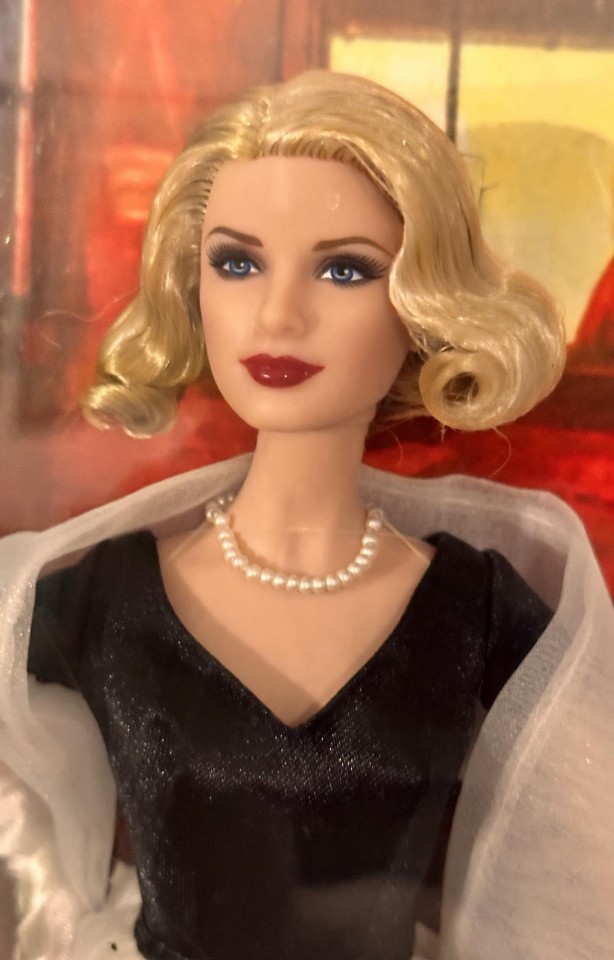




Grace Kelly in Alfred Hitchcock's Rear Window Barbie (2012)
#dolls#vintage barbie#barbie#my dolls#barbie dolls#dollblr#dollblogging#new barbie#doll community#grace kelly#rear window#mattel#alfred hitchcock#grace kelly barbie#2012#2010s barbie
49 notes
·
View notes
Photo










The Coit Tower was added to the National Register of Historic Places on January 29, 2008.
#Can you spot the Coit Tower in aerial pic?#Coit Tower#29 January 2008#USA#on board#Art Deco#Telegraph Hill#1 Telegraph Hill Blvd#California#travel#Lillie Hitchcock Coit#Arthur Brown Jr.#original photography#summer 2017#2012#2008#2022#vacation#San Francisco#San Francisco Bay#US history#National Register of Historic Places#Pacific Ocean#architecture#cityscape
4 notes
·
View notes
Text
Anthony Hopkins on Playing the 'Psycho' Director in 'Hitchcock'
WRITER’S NOTE: This article was originally written back in 2012. Sir Anthony Hopkins has played real-life people in movies such as President Richard Nixon in “Nixon” and John Quincy Adams in “Amistad,” but he was initially hesitant about playing the brilliant filmmaker Alfred Hitchcock in “Hitchcock.” The master of suspense has been imitated so many times over the years to where it seems…

View On WordPress
#2012 Movies#Acting#Alfred Hitchcock#Andrea Mandell#Anthony Hopkins#Biopics#Cold Spring Pictures#Daniel Day Lewis#Fox Atomic#Fox News#Fox Searchlight Pictures#George Chasen#Hitchcock#Howard Berger#Lincoln#Makeup#Method Acting#Philip Sherwell#Prosthetics#Sacha Gervasi#The Montecito Picture Company#The Telegraph#USA Today
0 notes
Text
My favorite movie from each year, 1960+.
1960. Psycho (Alfred Hitchcock) 1961. Breakfast At Tiffany's (Blake Edwards) 1962. Cleo from 5 to 7 (Agnés Varda) 1963. 8½ (Federico Fellini) 1964. Dr. Strangelove (Stanley Kubrick) 1965. Pierrot le Fou (Jean-Luc Godard) 1966. The Good, the Bad and the Ugly (Sergio Leone) 1967. The Fearless Vampire Killers (Roman Polanski) 1968. Bullitt (Peter Yates) 1969. Easy Rider (Dennis Hopper) 1970. Kelly's Heroes (Brian G. Hutton) 1971. Harold and Maude (Hal Ashby) 1972. The Godfather (Francis Ford Coppola) 1973. Badlands (Terrence Malick) 1974. Bring Me the Head of Alfredo Garcia (Sam Peckinpah) 1975. Jaws (Steven Spielberg) 1976. The Bad News Bears (Michael Ritchie) 1977. Smokey and the Bandit (Hal Needham) 1978. Days of Heaven (Terrence Malick) 1979. Alien (Ridley Scott) 1980. Dressed To Kill (Brian De Palma) 1981. Thief (Michael Mann) 1982. Diner (Barry Levinson) 1983. Scarface (Brian De Palma) 1984. Paris, Texas (Wim Wenders) 1985. To Live and Die in L.A. (William Friedkin) 1986. Hoosiers (David Anspaugh) 1987. Full Metal Jacket (Stanley Kubrick) 1988. Big (Penny Marshall) 1989. Do the Right Thing (Spike Lee) 1990. Goodfellas (Martin Scorsese) 1991. JFK (Oliver Stone) 1992. Scent of a Woman (Martin Brest) 1993. Dazed and Confused (Richard Linklater) 1994. The Shawshank Redemption (Frank Darabont) 1995. Heat (Michael Mann) 1996. A Time to Kill (Joel Schumacher) 1997. Princess Mononoke (Hayao Miyazaki) 1998. Fucking Åmål (Lucas Moodysson) 1999. Fight Club (David Fincher) 2000. High Fidelity (Stephen Frears) 2001. The Royal Tenenbaums (Wes Anderson) 2002. Spider-Man (Sam Raimi) 2003. The Station Agent (Tom McCarthy) 2004. Sideways (Alexander Payne) 2005. Kiss Kiss, Bang Bang (Shane Black) 2006. Volver (Pedro Almodóvar) 2007. Into the Wild (Sean Penn) 2008. In Bruges (Martin McDonagh) 2009. Up in the Air (Jason Reitman) 2010. Hesher (Spencer Susser) 2011. Drive (Nicolas Winding Refn) 2012. Zero Dark Thirty (Kathryn Bigelow) 2013. Nebraska (Alexander Payne) 2014. The Grand Budapest Hotel (Wes Anderson) 2015. Sicario (Denis Villeneuve) 2016. Hell or High Water (David Mackenzie) 2017. Three Billboards Outside Ebbing, Missouri (Martin McDonagh) 2018. Manbiki kazoku (Hirokazu Koreeda) 2019. Uncut Gems (Benny & Josh Safdie) 2020. Nomadland (Chloé Zhao) 2021. Licorice Pizza (Paul Thomas Anderson) 2022. The Banshees of Inisherin (Martin McDonagh) 2023. The Holdovers (Alexander Payne)
77 notes
·
View notes
Text
Details:
1940s Hans Christian Andersen shorts: Intended as animated segments within a live-action film about the author's life, these would have adapted The Little Mermaid, The Fir Tree, Through the Picture Frame, The Emperor's Nightingale, and The Steadfast Tin Soldier. (Yes, I know we got adaptations of several of these, but I still want to share the concept art for old versions).
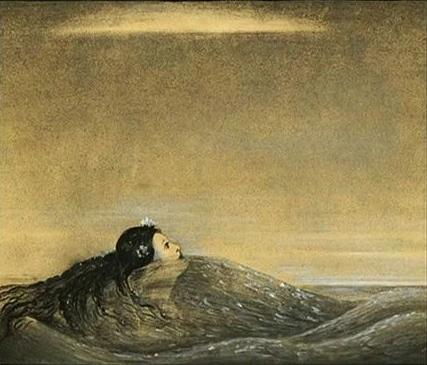
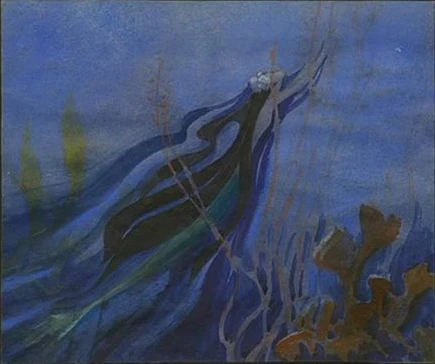
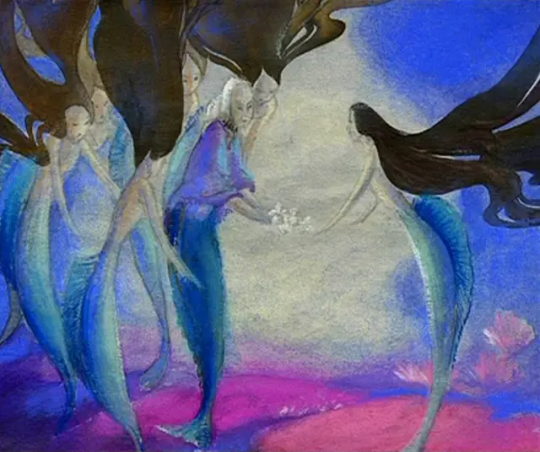
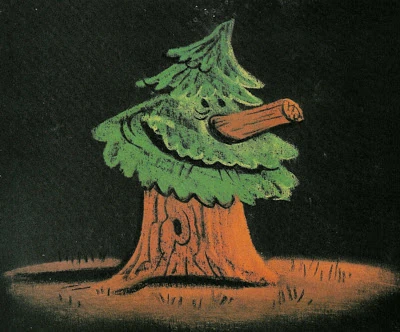
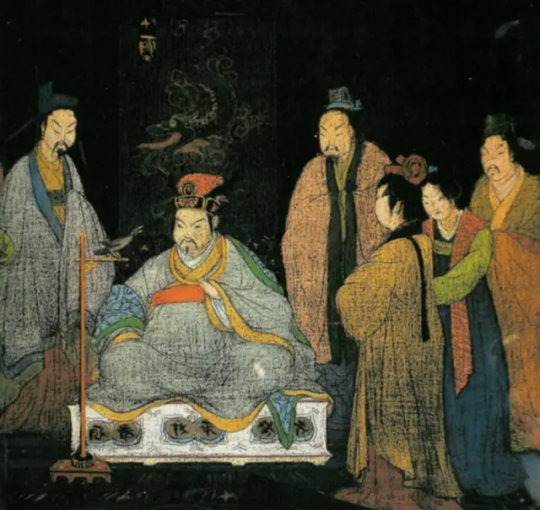
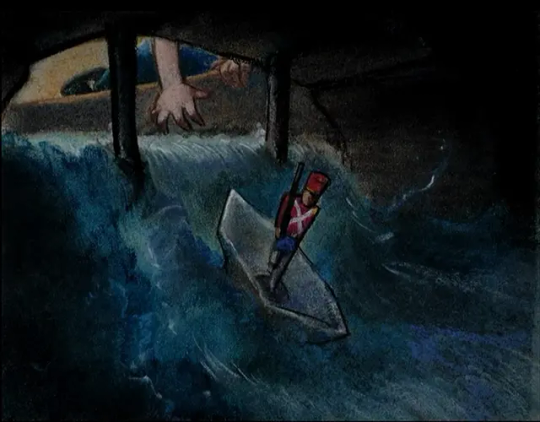
Gremlins: A film they worked on a lot during WWII but couldn't crack the story (or find money to make it)
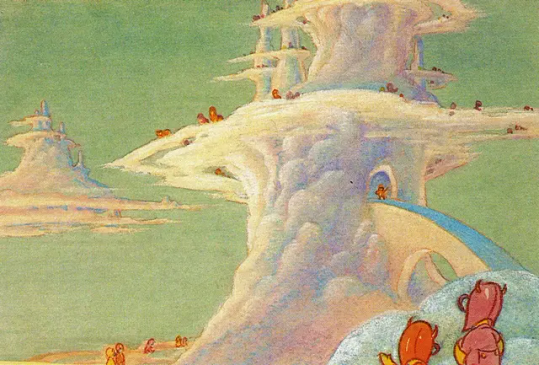
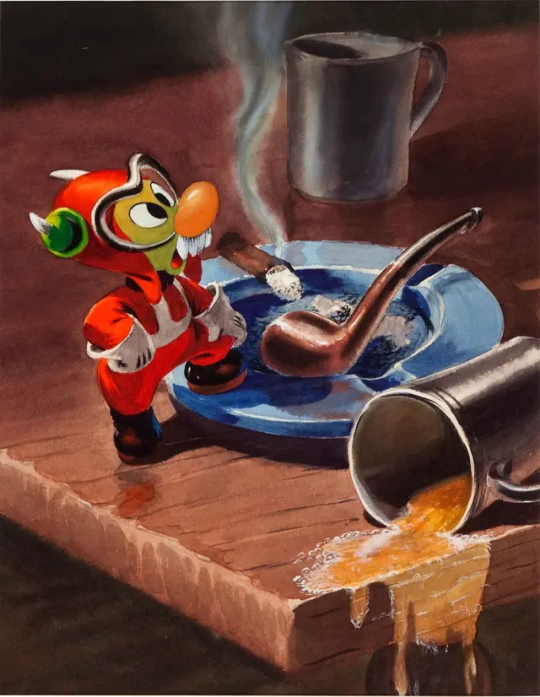
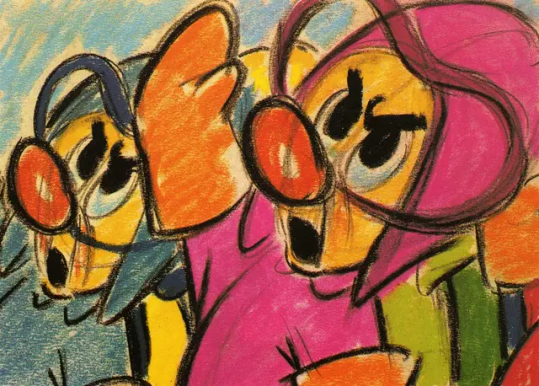
Don Quixote: They tried to adapt the story in various ways in the '40s, '50s, and '00s, which is too long to get into here, but it led to some interesting concept art.
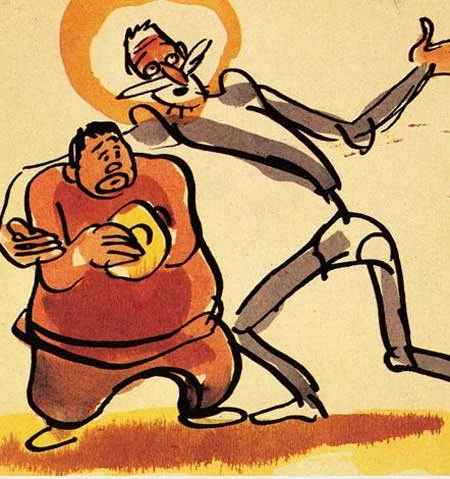
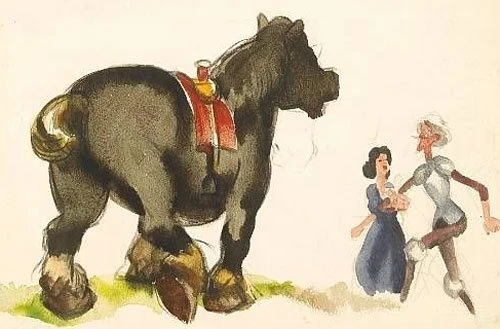
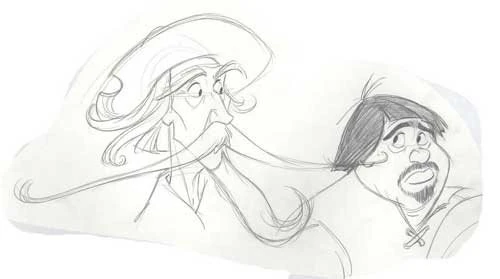
Chanticleer: A story about an arrogant rooster who thought his crow made the sun rise, and used this to rule over the other farmyard animals. Reynard the Fox was a villain who tried to take advantage of the discontent in the farm animals to take over as their leader (with plans to eat them), which leads to Chanticleer saving them and learning humility. Work started on it in the 1940s, and it was so close to being made in the 1960s, but they decided to go with The Sword in the Stone instead. Some of the animators loved it, though, and some of the character concepts were later adapted into Robin Hood.

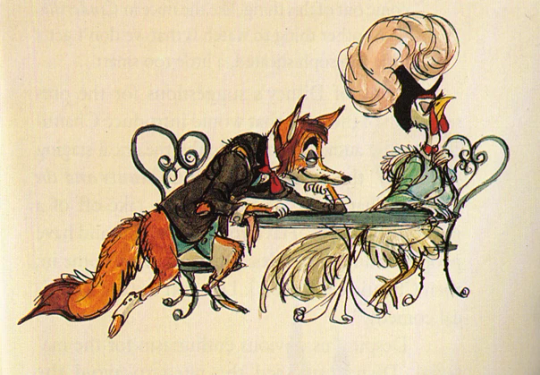
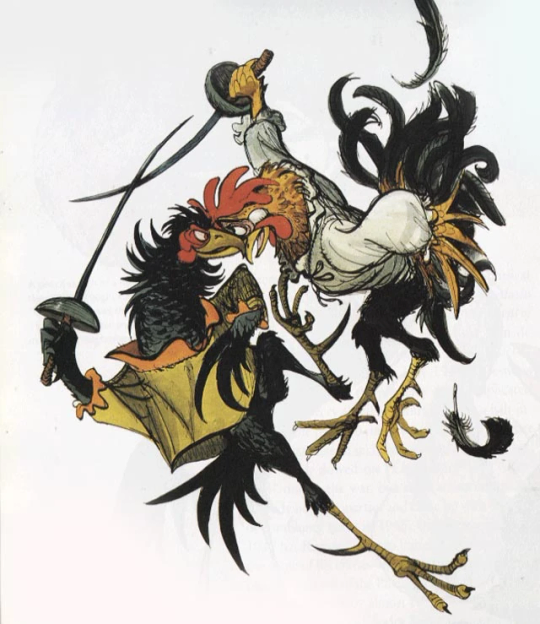
Catfish Bend: I haven't found much about the story beyond "talking animals in the South", but the concept art intrigues me. It would have been released in 1981, but after it was shelved, some of the concepts went on to inspire The Rescuers.
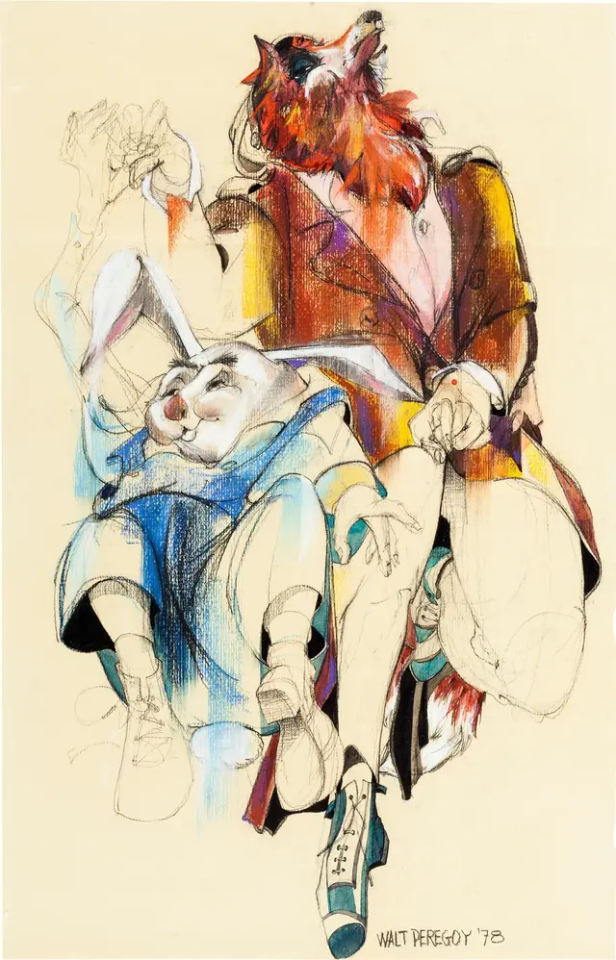

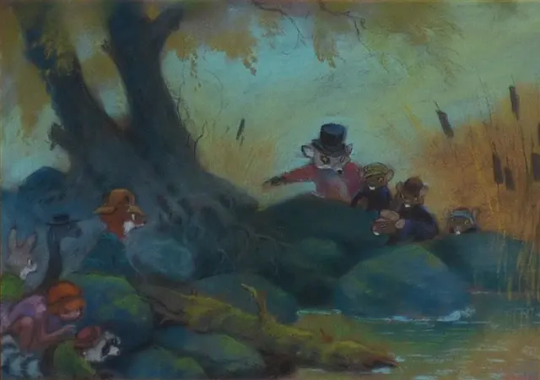
Mistress Masham's Repose: An adaptation of T.H. White's novel, pitched in the late 1980s
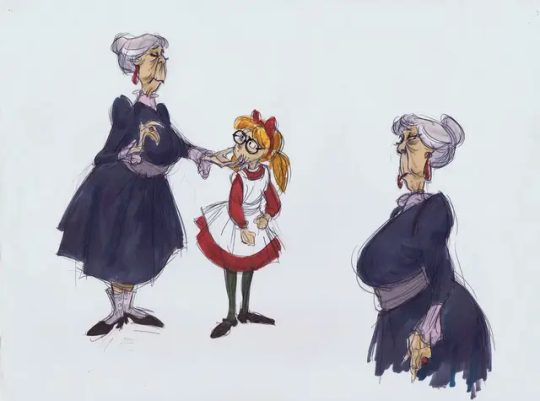
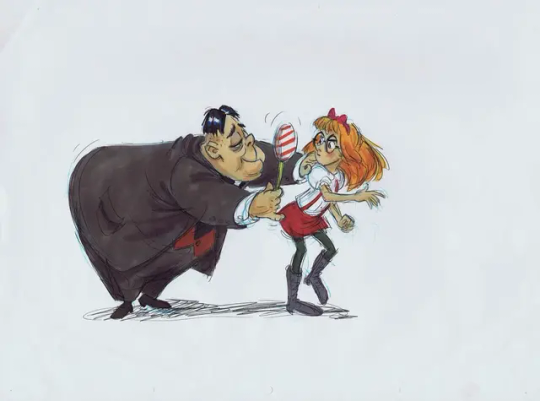
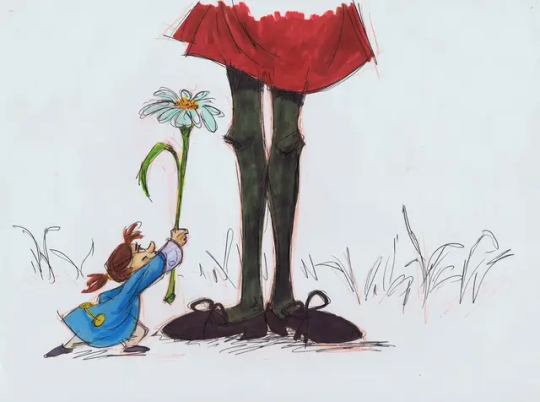
Fraidy Cat: 2009 film about a pampered housecat named Oscar who is falsely accused of kidnapping another pet and has to team up with a cockatoo and try to find the real culprit to clear his name. Shelved because they figured kids and general audiences wouldn't understand the Hitchcock references (which seems like a terrible reason, but alas).
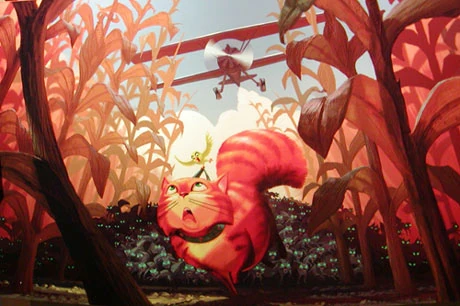
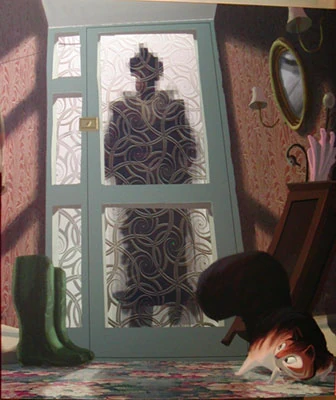
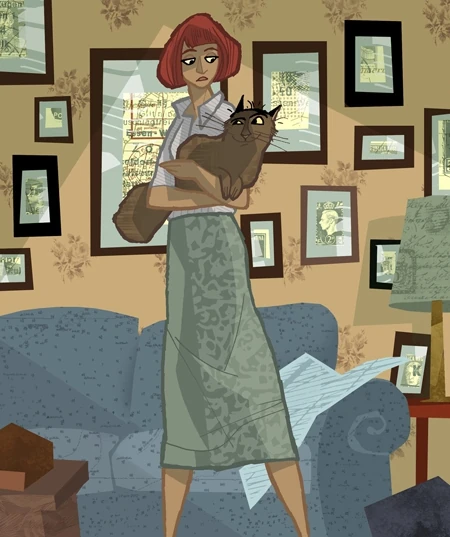
King of the Elves: Announced in 2009, it was a 3D animated film scheduled for 2012, before being shelved in 2016. Adapted from a Philip K. Dick story, it was about an ordinary man who saves some elves from a troll and (apparently reluctantly) gets declared their king.
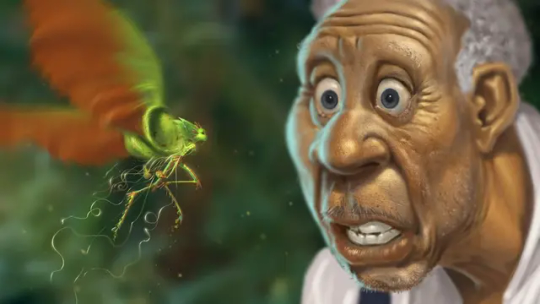
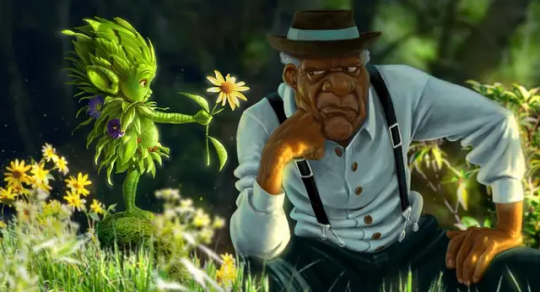
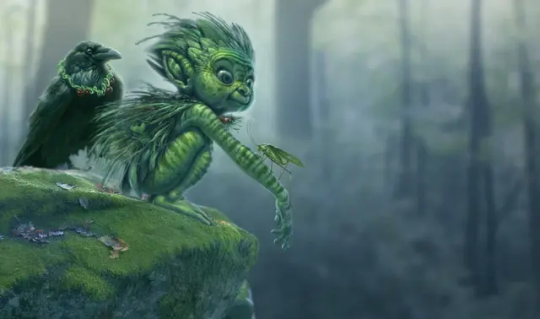
Gigantic: A retelling of Jack and the Beanstalk set during the Spanish exploration, it involves Jack meeting an 11-year-old female giant who treats him like a doll, and eventually fighting much larger Storm Giants. Would have had songs written by the team from Frozen and was set to be released in 2018, then moved to 2020 before being cancelled because apparently they couldn't figure out the story.
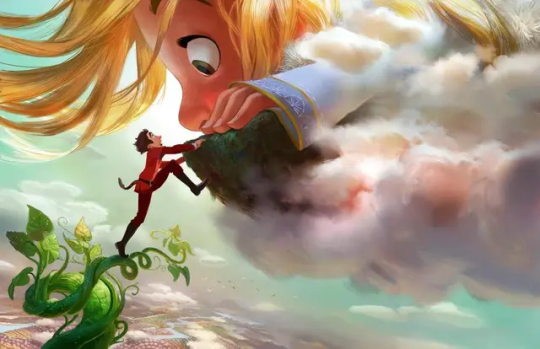
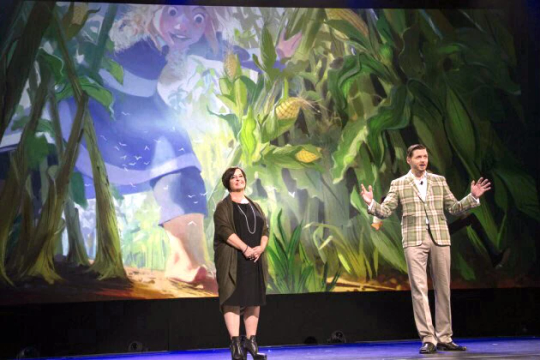
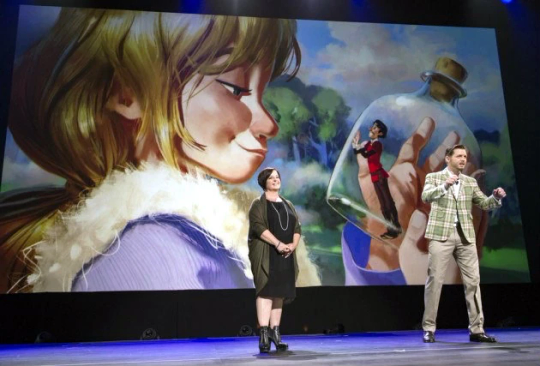
#polls#disney#random thought of the day#the dive down the rabbit hole forced me to make this#i tried to limit it to projects that weren't made later (except the hans christian andersen ones because kay nielsen did concept art!)#and to ones that had cool concept art available#and weren't sequels to other things#but there were a lot of cool ideas that didn't make it into the poll#did you know that someone pitched using elements of the hobbit in fantasia?#set to wagner's ring cycle?#(there were other disney tolkien pitches over the years but that one was one of the most intriguing)
84 notes
·
View notes
Text
2024 in Films - Part III
I watched a lot of stuff again, some even for grad school.
August
Lola Rennt (1998) - banger soundtrack and editing
Vertigo (1958) - the most boring of the Hitchcock films I've seen so far
A League of Their Own (1992) - makes me want to watch baseball
White Men Can't Jump (1992) - did not expect jeopardy to be so important in this film, also loved the fashion
The Fall Guy (2024) - my mum loves the original series so we had to watch this and I had an amazing time
Blinded by the Light (2019) - the dialogue is strange at times but a banger soundtrack (obviously) and some amazing editing, very uplifting and I watched this on my flight to the US btw
Good Will Hunting (1997) - I watched this during my first week in Massachusetts before starting grad school here
Alien3 (1992) - this film says so much about gender, actually
Deaf Smith & Johnny Ears (1973) - taking lots of liberties with Texan history and also surprising homoerotic subtext
September
Causeway (2022) - a film that I originally only found meh but then kept thinking about all the time
Nosferatu the Vampyre (1979) - equally blood libel as the og with an added bonus of cycle of violence, might write an essay about this
Sleepaway Camp (1983) - another horror film that says so much about gender and I could write an entire essay about it
My Best Fiend (1999) - Werner Herzog must be studied under a microscope
We're All Going to the World's Fair (2021) - not as good as I saw the tv glow imo but asking some important questions about online communities and reality
Jacob the Liar (1974) - the film felt a little too empty but I also don't want to say something negative because I am still angry about a bad review I saw
Chris Grace: As Scarlett Johansson (2024) - absolutely transformed the way I think about stand up comedy
All Quiet on the Western Front (1930) - the old lie dulce et decorum est pro patria mori
The Shock (1923) - as ableist and racist as you expect from the 20s but with a great performance from Lon Chaney
Trap (2024) - I actually really enjoyed this, even though I was waiting for an even crazier plot twist
Don't Think I've Forgotten: Cambodia's Lost Rock and Roll (2014) - a documentary that nearly made me cry
Hudson Hawk (1991) - technically a rewatch but I need to speak my truth and it's that I like this film
All Quiet on the Western Front (2022) - I have so many issues that this would take an entire post or even conference paper
The Russians Are Coming! The Russians are Coming! (1966) - had me in stitches half the time, I love a good cold war comedy
The Bone Collector (1999) - spooky!
Monkey Shines (1988) - also horror and gender but also silly
Death in Venice (1971) - boring :/
October
UPSIDEdown (2013) - I watched this one twice, once with the director, also had lunch and coffee with him, I had an issue at first with how child protection service is portrayed but that part is apparently real, also he cast a neurodivergent kid, which is awesome
The Master (2012) - I love when men are also poorly trained attack dogs, also can you imagine sending that guy to the cult from Midsommar? Also still haunted by Philip Seymour Hoffman
Like Stars on Earth (2007) - neurodivergent kids need neurodivergent role models!!!
The Lost Honor of Katharina Blum (1975) - I have so much to say about this tbh
Farewell Disco (1990) - at first I found this kinda boring but then I was also enchanted by the inclusion of Sorbian culture
The Kangaroo Conspiracy (2022) - just read the books
November
Srikanth (2024) - fairly standard biopic, meanders a bit but solid soundtrack and performance
Innocent Witness (2019) - this one impressed me so much I recommended it to multiple people, also I'm an autistic person who is besties with my lawyer so bonus points for that, I could talk a lot about this too
Hunt (2022) - Probably less confusing if you know more about Korean history, fun plot twist and imo some homoerotic tension
Scarlett Innocence (2014) - tbh I didn't even watch the whole thing because I don't go for erotic thrillers, I just watched the scenes where Jung Woo Sung is a poor little meow meow
Inseperable Bros (2019) - some dialogue was a bit awkward but that might have been the translation, I like that this was about interabled platonic relationships
Remember You (2016) - the first plot twist is predictable as hell but the second one hit me in the face like a brick
The Childe (2023) - Kim Seon-ho has the range (creepy and babygirl) (covered in blood and coughing up blood)
The Good The Bad The Weird (2008) - not only the best western I've ever seen but also one of the best films I've seen this year at all
Sympathy for Mr Vengeance (2002) - very unsatisfying, but in a good way
As We Were Dreaming (2015) - the German answer to banlieu films, a film about the reunification of Germany from a different perspective than you're used to, despite living decades later and in the west I feel like I know these characters
Transit (2018) - the anti Casablanca, a double exposed picture of past and present, a Kafkaesque limbo of bureaucracy and loss of identity
Berlin Alexanderplatz (2020) - long, confusing, too smart for me and I still couldn't stop watching it. There's something very queer about this film too.
Wicked (2024) - I haven't seen the musical but went to see the film with my friend (and her family) and physically went 👀 to her every time something gay happened. I'm sorry I doubted you Ariana Grande.
December
Fly Me to the Moon (2024) - I watched this on a terrible transatlantic red eye flight and it entertained me. Unique concept but predictable execution
Debbie Macomber's Dashing Through the Snow (2015) - shout out to the Jewish biker guy handing out free puppies
Round and Round (2023) - Actually a really fun Hallmark holiday film?? And a nice twist on the time loop genre??
Wicked Little Letters (2023) - Very fun to watch on new years eve while tipsy
27 notes
·
View notes
Note
hi mom ik you're a big fan of cinema and im lookign for new movies to watch, can u share your top 4? thank uuu
Oh dear, you're killing me.
Phantom of the Paradise - Brian de Palma (1974), a musical and the lovechild of the myth of Faust, the Phantom of the Opera, and the Shining (the soundtrack is to die for).
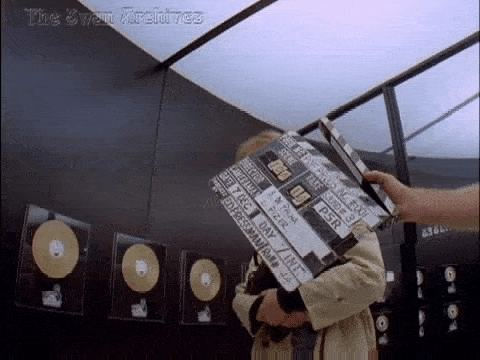
La Folie des Grandeurs - Gérard Oury (1971), an adaptation from a play (by the author of les Mis) about politics, the Court of Spain, love, greed - I've been in love with the lackey my whole life.
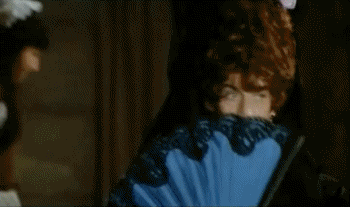
The Seventh Seal - Ingmar Bergman (1957), the story of a medieval soldier playing chess against Death to save his life (and a great source of relief when my head was playing against me).

The 101 Dalmatians - Stephen Herek (1996), not quite auteur cinema but my favourite comfort movie, at first a great reminder of how peaceful life without modern day tech was, then an amazing love story, then an investigation, a fantastic cast, perfect villains, many dogs, great music, my whole heart on a platter.
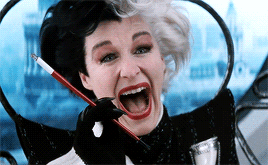
I will make a longer list and you cannot stop me:
Rear Window - Alfred Hitchcock (1954), where a photographer stuck at home after an accident grows suspicious of a neighbour whose wife has disappeared.
La Jetée - Chris Marker (1962), an experimental sci-fi short movie made by one of my favourite directors, about the scientific experiments done on a man to save the world, that later inspired Terry Gilliam's Twelve Monkeys (that could also be on this list).
Anything? (Seven chances, Cops, The Cameraman) - Buster Keaton (1920s), my second favourite director and a firework on legs who was never afraid of a stunt.
The Host - Bong Joon Ho (2006), where lab waste thrown into the sea creates a monster that kidnaps a girl, forcing her good for nothing father to finally do something with his life.
Death becomes her - Robert Zemeckis (1992), where two middle-aged actresses fight for a man, get blinded by their desire for youth and cross paths with magic and murder.
The Rocky Horror Picture Show - Jim Sharman (1975), the meeting between a young old school couple and a group of weird creatures in a mansion (including my husband Tim Curry).
Pride and Prejudice - Joe Wright (2005), of course.
Body Snatchers - Philip Kaufman (1978), one of the four adaptations of the book and the best one in my opinion, the story of people mysteriously disappearing and returning changed and a tale about human passion.
Old boy - Park Chan-Wook (2003), the visually stunning and heartbreaking story of a man randomly kidnapped, kept somewhere for years, then released without a word.
Minority Report - Spielberg (2002), a dystopian movie about a world where the efforts of science and exploitation have put an end to criminality, at a great price.
Sleeping Beauty - Disney (1959), the most beautiful one, the only one with a composer's music, one of the best villains.
The Age of Adaline - Lee Toland Krieger (2015), the story of a woman who stopped aging and navigates the world while trying to not get caught or catch feelings.
Planet Terror - Robert Rodriguez (2007), an unserious tale of zombies, a virus, and Rose McGowan's pew pew leg.
Home alone 2 - Chris Columbus (1992), for Christmas in New York, Tim Curry, the toy store's owner, and the pigeon lady.
Electrick children - Rebecca Thomas (2012), where a Mormon teenager gets pregnant with the child of God after listening to a tape and runs away to Vegas to find the dad.
And many more I'm afraid. Hope you will like those! x
10 notes
·
View notes
Text
Half-Finished Fic Fest
Back with more old fic. I think I wrote this around 2012, probably as a fill for this prompt during a Gossip Girl promptathon:
No, no, I think it's more like a ghost That's been following us both Something vague that we're not seeing Something more like a feeling
I think I never posted because I felt like others had already done post-canon Dair reunions more justice. But begone, self-doubt!
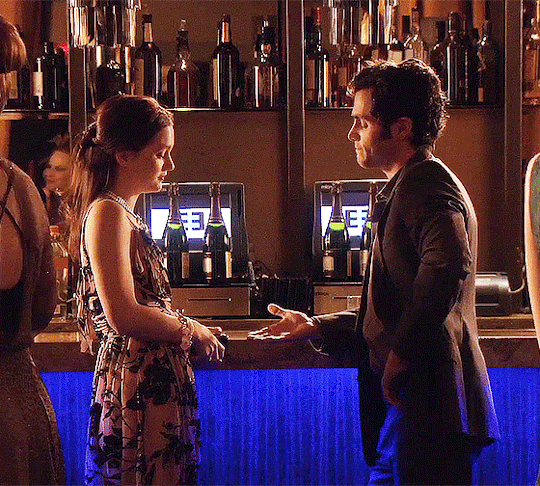
There's a dream in my brain that just won't go away Dan/Blair 1162 words
Blair tells herself she's happy. Because happy is what happens when your dreams come true, right? When you get everything you ever wanted? Yes, of course she is happy.
She does not think about what ifs — does not imagine any other path but the one she has chosen. No Frost-ian ruminations about roads less traveled for her (no poetry whatsoever, in fact). Because what would be the point? She has finally (finally) won Chuck's heart, and Blair is blissfully, perfectly happy thankyouverymuch.
It's just… Maybe she expected the happiness to feel a little bit different. To be less heavy.
But it does not do to dwell, so Blair clutches the sparkling diamond ring around her neck until it leaves angry red imprints on her palm, and reminds herself that she is very, very happy.
***
Dan tells himself he's over her. He dabbles in revenge for a little while, writing nasty tell-all essays about everyone in his life and hoping they will fill the aching hole inside of him where her pithy insults about his hair used to be. He lets it all drain out of him like a thick, infected puss until he wakes up one morning and discovers there's nothing left but a nasty scar. And suddenly, he is sad instead of angry.
So Dan throws himself into new pursuits — he re-enrolls at NYU, gets another internship, dates as many tall blondes and redheads as his schedule allows. He rents a new apartment and does his best not to feel sentimental when he finds three of her DVDs and a pot of La Mer face cream tucked away in the bedside table he's cleaning out.
Tossing everything into the garbage with a purposefully casual flick, Dan thinks of Blair only in the abstract. They were together until they weren't. It was wonderful until it wasn't. Until she decided it wasn't.
Whatever, he's over it.
***
It's five years later when they see each other again, at a Saturday Film Forum matinee, of all places. Blair hears herself calling out his name before she can stop herself, and when Dan turns around he looks so perfectly like himself (messy hair, a knowing half smile pulling at his lips) that it nearly takes her breath away.
It takes four long strides for him to reach her, and just like that Dan Humphrey is standing in front of her again, two steaming cups of coffee clasped in his hands. For a split second, Blair imagines that they are 22 again and that one of those cups is for her. She flicks the thought away with a sharp intake of breath.
"Blair," Dan says finally, and it comes out far gentler than she expects. "Are you here to see Rebecca?"
"Of course," she says, fidgeting idly with the edges of her skirt. She forces her fingers to still against her thighs. "It's a classic."
"Hitchcock's best, some might say."
"Some might say. Not me."
Dan smiles in spite of himself. "North by Northwest is still your favorite I assume?"
Blair cocks her head to the side. "And you preferred –"
"Vertigo," he nods.
She smirks in spite of herself. "You always did have a weakness for blondes."
"A long time ago," he acknowledges.
"How have you been?" she asks, and it seems like such a silly thing to say that she finds a blush creeping up her cheeks. But Dan just tilts his head to the side and smiles.
"I'm good," he says simply. "How are you? How's work? Chuck?"
"Work is wonderful, busier than ever," Blair smiles. “And Chuck is…Somewhere in Europe right now, I think. It didn't work out."
Dan's eyes crinkle. "I'm sorry. I didn't know."
She shrugs it off with a wave of her hand. "It's fine."
They hold each other’s gaze for a moment before Dan murmurs, “I only ever wanted you to be happy, you know…”
It’s such a Dan Humphrey thing to say. A shade too earnest. A little wounded. Perfectly sincere.
Blair feels a lump rise in her throat. She opens her mouth to reply, but just then a petite woman with an auburn bob slides up next to Dan with two matching striped bags of popcorn in her hands.
“The line was so long. I hope all the good seats aren’t taken.”
Dan seems to startle ever-so-slightly before remembering himself and sliding his eyes away from Blair to smile down at the other woman. He fumbles with the coffee cups in his hands, passing one to her as he takes one of the bags of popcorn in between his long fingers.
"Blair, this is Tess. Tess, Blair. Blair and I…went to high school and college together."
Blair’s eyebrows lift before she can stop them, but she quickly schools her face into something more neutral. “Nice to meet you.”
"Are you seeing the movie?” Tess asks, her smile wide and bright. “I'm a Hitchcock virgin."
Blair purses her lips, an insult on the tip of her tongue before she catches Dan's knowing smirk and stops herself. "Well you'll love Rebecca. It's the only one of his movies that ever won Best Picture.”
"That's what Dan was saying."
"Go grab us some seats and I’ll be right in,” Dan says, and Blair tries not to notice the way he puts his hand against the small of Tess’ back before she walks away.
“Girlfriend?” Blair asks after a moment, when it’s just the two of them again.
“Not yet.” Then, “It’s new.”
“But it could be something?” she presses, unable to stop herself.
“Lots of things could be something,” Dan says vaguely, scuffing the toe of his shoe against the floor. Then he lifts his chin to look her right in the eyes. “If you get the timing right.”
They stare at each other for a few long moments before Blair finally says, “It was good to see you.”
Dan looks like he wants to say something else, but then he seems to think better of it. “Yeah, you too,” he says, then turns toward the theater doors.
Blair rocks back and forth on her kitten heels, staring at Dan’s back as he walks away. When he opens the doors and starts to disappear inside, she hears Joan Fontaine utter that haunting first line.
Last night I dreamt I went to Manderley again.
Blair sucks in a sharp breath and turns away from the theater. She’s not in the mood for a movie after all.
***
Four hours and two glasses of wine later, Blair texts him, her fingers trembling over her phone. Maybe he doesn’t even have the same number.
Funny thing, I wasn’t happy.
Dan’s reply comes almost immediately.
Funny thing, I thought I was over you.
Blair bites the inside of her cheek, her heart racing as her fingers hover over the phone keyboard. Then:
Maybe we could get the timing right this time.
Maybe we could.
Want to get coffee tomorrow, Waldorf?
I thought you’d never ask, Humphrey.
20 notes
·
View notes
Text
On this day in 2012:
Glee season 4, episode 5 “The Role You Were Born to Play” aired.
Written by Michael Hitchcock and directed by Brad Falchuk, the episode was originally watched by 5.68m viewers in the United States.
4x05 featured 5 new cover songs- Hopelessly Devoted to You, Blow Me (One Last Kiss), Juke Box Hero, Everybody Talks, and Born to Hand Jive.
The episode also followed a 5 week hiatus and was the first episode to not feature Lea Michele as Rachel Berry.
8 notes
·
View notes
Text



Hitchcock posters
#horror#horror movies#horror movie#movie posters#posters#movie poster#poster#Hitchcock movie#Hitchcock 2012#alfred hitchcock’s psycho#alfred hitchcock#psycho 1960#janet leigh
18 notes
·
View notes
Text
Jenny's ongoing list of films watched 2024
January
RRR (2023)*
Peter's Friends (1992)*
The Lady Eve (1941)
How to Get a Head in Advertising (1988)*
High Fidelity (2000)
Frieda (1947)*
Oh...Rosalinda! (1955)
The Quick and the Dead (1995)*
The Barefoot Contessa (1954)*
The Life and Death of Col. Blimp (1943) Commentary Track (2012)*
Rhubarb (1951)*
The Birds (1963)*
House of Yes (1997)*
Cassandra Cat (1963)*
Foreign Correspondent (1940)
The Long Goodbye (1973)
Night of the Comet (1984)
The Day the Earth Caught Fire (1961)*
For Me and My Gal (1942)*
The Grand Budapest Hotel (2014)
The Small, Back Room (1949)
House of Games (1987)
Water (1985)*
The Ballad of John and Yoko (2023)*
The Meaning of Life (1983)
Track 29 (1988)*
*New to me
Thoughts on the New to Me films:
New Year's Eve we watched RRR, a lot of fun, energetic, bright and action-packed. I enjoyed the way that little attention was given to the British characters. They were straight up villains in ill fitting ahistorical costumes, kind of like the way Indian/Asian characters are treated in Western films most of the time...$$$
New Year's Day we watched Peter's Friends, a drama/comedy from the early 90s starring all of the famous Cambridge Footlights. Big Chill-ish film set in a country house over the Christmas holidays. $$$
How to Get a Head in Advertising was weird and also really good. Had a similar vibe to Withnail and I (possibly because of Richard E. Grant, but also possibly the mixture of the surreal with the realistic). Quite stage-y in some ways but clever and savage in it's satire of life in the 80s. $$$
Frieda: Oh I loved this! Weird World War II melodrama about a German girl marrying a British boy and all the trouble it causes with his complex family situation. Such a stellar cast including the late, great Glynnis Johns. $$$$
The Quick and the Dead: I set my expectations quite low for this and was pleasantly surprised. I liked Sam Raimi's comic book-y take on gunfighters and esp. loved Sharon Stone's character. We love to see a female action hero with no love interest. A nice twist on the Man with no Name trope. Excellent cast as well with Russell Crowe, Gene Hackman, Roy Scheider and Woody Stroud in his final film. $$$
The Barefoot Contessa: Joseph Mankewitcz is one of the geniuses of old Hollywood but this ain't it, chief. Just kind of all of the place melodrama that makes no sense and relies too much on Ava Gardner looking amazing in technicolor in the South of France. A bit of a commentary on Grace Kelly who a few years earlier married minor royalty on the Riviera. Even Rossano Brazzi can't save this mess for me. $
Rhubarb: Two genres I usually kind of hate (family-friendly animal centered film, sports film) combined into one and it's actually a lot of fun. Ray Milland and a bunch of classic character actors as the baseball team (also Leonard Nemoy has a tiny part as a mobster) in this slight/ predictable romp. $$
The Birds: Woah, shit this was good. I should have known. Amazing tension created and Hitchcock just sells the surreal horror with lots of rear projection...so. much. rear. projection. $$$
House of Yes: How about House of NOPE. Ugh what a mess this was. Some good performances and intriguing story, but it was very stagey and I don't know why the 90s couldn't make a story about adult children and their parents without reducing everyone to cliches and stereotypes but this and Six Degrees of Separation are definitely guilty of that, but the latter is just a better film. $
Cassandra Cat: Takes a long time to get to the cat which given that this was a family film from the 60s might be a problem for some viewers, expecting a more cat-centric movie. Interesting riff on fairy tales from the Czech New Wave. Beautiful Demy-esque technicolor and settings make this 60s nonsense fly by. $$
The Day the Earth Caught Fire: 60s nuclear panic disaster film that really just shows the earth as it is now in the throws of global warming. Yikes. Thoughtfully written and well acted by a bunch of folks I'd never heard of. $$
For Me and My Gal: Directed by Busby Berkley and starring Gene Kelly and Judy Garland and set in the 1920s on the Vaudeville circuit, I was expecting a lot more fun, dancing, color, costumes etc. This is actually more of a black and white war time melodrama with some music shoved into it and the dancing is very rudimentary. (I think this is probably because Garland esp. at this stage wasn't in the same league with Gene Kelly and I think it would have been too noticable...). Filmed at the entry of America into WW2 this was quite a deliberate propaganda piece. $$
TLADOCB Commentary: I've watched this movie 20 times at least but the commentary really made me think about a bunch of things differently. Can't say I recommend unless you are fanatic though as it's obviously pieced together from interviews Michael Powell and Martin Scorcese $$
Water (1985): If you smoke the exact right strain of sativa and ignore some of the more dated aspects of this 80s comedy, that reads as if Local Hero were a Cheech and Chong film--this is a total classic. Irreverent Michael Caine just straight up breaking character the minute he turns into a guerilla fighter in the jungle and being far too competent and cool, and then snapping back to sweetly shy, inept British Civil Servant, finding he actually loves his hated backwater post (the invent Casara part Caribbean, part Devon Jurassic Coast) while having to actually do his job. Political satire and fully both barrels to Maggie Thatcher and Reagan. Good on em. Filmed in St. Lucia, the movie has a zany heart and little taste, hoovering up vast quantities of competent TV players from my youth: Herman Munster and Reginald Perrin to name but two. Awkward love story and some uneven acting from Valerie Perrin and Brenda Vaccaro. I enjoyed myself, heartily, anyway. $$$
The Ballad of John and Yoko: Technically a video essay with amazing production values (the licensing alone was epic) dragging together disparate topics around the central theme of women being blamed for bad things happening to infantalized male geniuses. Is it the most coherent argument? No. Does it absolutely tap into many unexpressed or implied ideas that have been floating around since me too? Absolutely. $$
Track 29: This was some of the worst casting I've ever seen in a film. When I think of Texas nurse who is into trains and spanking, I don't automatically think of comedian Sandra Bernhardt. When I think of an actress of that era who was old enough to play Gary Oldman's mother, I don't think of Theresa Russell who is the same age as Oldman and looked every bit as young as he did in the film. Maybe that was the point? I'm not sure. The story was weird, like a Southern Gothic melodrama/black comedy ala Flannery O'Connor, but there was something off about the whole thing.
20 notes
·
View notes
Note
The writing on Eric’s chair is most likely Hitchcock. It’s the same font as the logo for the 2012 film Hitchcock. They blur it out cuz of copyright reasons and so AMC doesn’t accidentally advertise another studio product.
Maybe. We'll see :) (maybe^^)
9 notes
·
View notes
Text


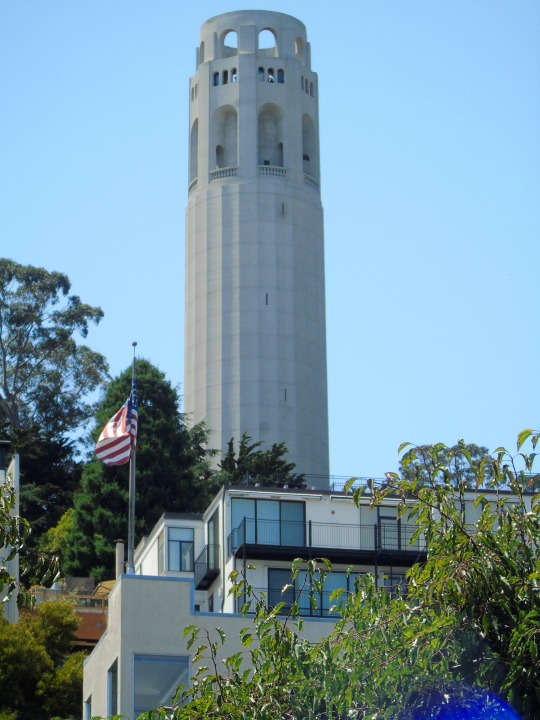



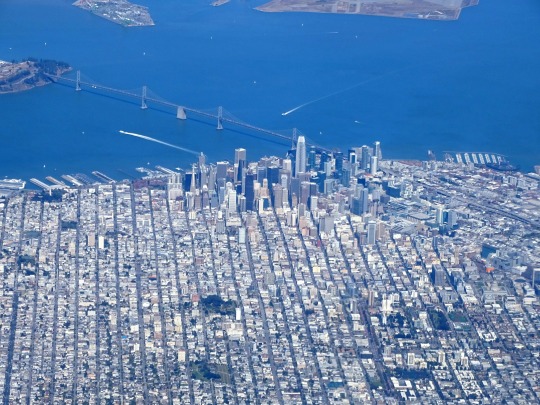




The Coit Tower was added to the National Register of Historic Places on January 29, 2008.
#Can you spot the Coit Tower in the aerial pic?#Coit Tower#29 January 2008#USA#on board#Art Deco#Telegraph Hill#1 Telegraph Hill Blvd#California#travel#Lillie Hitchcock Coit#Arthur Brown Jr.#original photography#summer 2017#2012#2008#2019#vacation#San Francisco#San Francisco Bay#US history#National Register of Historic Places#Pacific Ocean#architecture#cityscape#tourist attraction#landmark
1 note
·
View note
Text
és nem jut eszembe, csak holnap, amit mondani kellett volna
gondolkoztam, hogy haladni kéne a korral és egy 2023-as lemezlistát már egy mesterséges intelligencia is meg tudna írni (nyilván ha beletáplálnánk a megfelelő információt). és valóban, ennél az összeállításnál én is egyre inkább támaszkodom számszerűsíthető adatokra, pl. az év végi spotify-statisztikákra, de azért ez még mindig egy kézművesen összerakott lista a hozzáadott humán faktorral, például a spotify szerint 2023-ban általam legtöbbet hallgatott boygenius a 2. helyre fért fel (mert nyilván az is számít például, hogy mi mikor jött ki, meg a beazonosíthatatlan egyedi érzések, ami így karácsony napján eszembe jut az egyes albumokról).
első ránézésre az idei lista (is) remekül befér a "sad indie" kategória műfaji áttekintésének, sajnos az első helyen végző posztumusz (több mint tíz évvel mark linkous halála után kijött) sparklehorse-album pedig ezt bizonyos értelemben megkoronázza, többek közt az egyik legtorokszorítóbb pillanattal, de azért még erre a lemezre se mondanám, hogy kizárólag szomorkodásról szólna, pl. milyen jó energikus ez a robyn hitchcock-feldolgozás. (aki adakozó kedvében volt sallai laci felhívására, olvashatott többet is a lemezről.) a listakészítés történetében az is egyedülálló, hogy egy alkotó két lemezét egy helyre soroltam be végül: a national számomra igazán fontos előadó az elmúlt tizenegynéhány évből, és mind a két idei lemezen találtam nekem sokat jelentő számokat, de közben kicsit úgy is vagyok vele, hogy a kettő helyett lehetett volna egy igazán ütős idei lemez, talán kicsit kevesebb kollaborációval (bocsánat, de a taylor swift-es szám pl. nekem semmit nem mondott, és ez most nem taylorról egy kijelentés, hanem erről a konkrét alkotásról).
szóval jöjjön 17 (18 igazából) jó lemez 2023-ból (a cappuccino projekt az 2022-ből igazából, de mivel december közepén jött ki, idén volt bemutatva és amúgy is idén hallgattam többet, a recordert követve én is az idei listára teszem), mindenhonnan ajánlva egy számot:
13-17. belle and sebastian: late developers 13-17. the clientele: i am not there anymore 13-17. kurt vile: back to moon beach ep 13-17. nation of language: strange disciple 13-17. sufjan stevens: javelin
12. káltes ekwa: átváltozások 11. beach fossils: bunny 10. soccer mommy: karaoke night ep 9. cappuccino projekt: az utak kifürkészhetetlenül rögösek 8. caroline polachek: desire, i want to turn into you 7. the national: first two pages of frankenstein / laugh track 6. yo la tengo: this stupid world 5. wilco: cousin 4. galaxisok: minket ne szeress! 3. slowdive: everything is alive 2. boygenius: the record 1. sparklehorse: bird machine
és! még! voltak! jó koncertek is idén! (mindenféle feljegyzéseim szerint többre jutottam el, mint 2017 óta bármikor.) szóval jön a folytatás.
[korábban: 2022, 2021, 2020, 2019, 2018, 2017, 2016, 2015, 2014, 2013 pt. 1, pt. 2, 2012, 2011]
19 notes
·
View notes